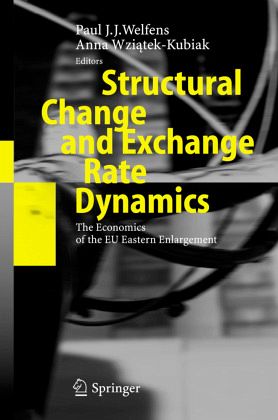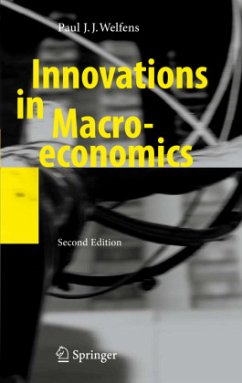
Structural Change and Exchange Rate Dynamics
The Economics of EU Eastern Enlargement
Herausgegeben: Welfens, Paul J. J.; Wziatek-Kubiak, Anna

PAYBACK Punkte
38 °P sammeln!
Structural change, economic growth and adequate exchange rate adjustment are key challenges in the context of EU eastern enlargement as are consistent macroeconomic policies. The authors focus on sectoral adjustment across industries in catching-up countries and explain changes in the composition of output - this includes new aspects of the Chenery model. They describe and analyze the spatial pattern of specialization and adjustment in many countries. Theoretical and empirical analysis of foreign direct investment, innovation and structural change shed new light on economic dynamics in Old Eur...
Structural change, economic growth and adequate exchange rate adjustment are key challenges in the context of EU eastern enlargement as are consistent macroeconomic policies. The authors focus on sectoral adjustment across industries in catching-up countries and explain changes in the composition of output - this includes new aspects of the Chenery model. They describe and analyze the spatial pattern of specialization and adjustment in many countries. Theoretical and empirical analysis of foreign direct investment, innovation and structural change shed new light on economic dynamics in Old Europe and New Europe. As regards exchange rate dynamics both traditional aspects (such as the Balassa-Samuelson effect) and new approaches to understanding exchange rate developments are presented. Links between exchange rate changes and innovation are particularly emphasized.














